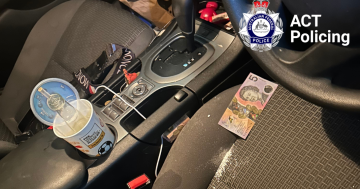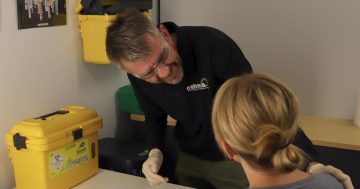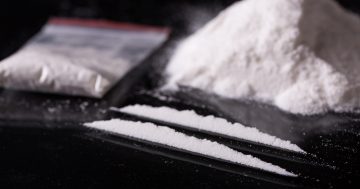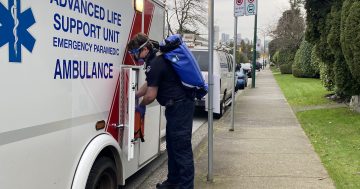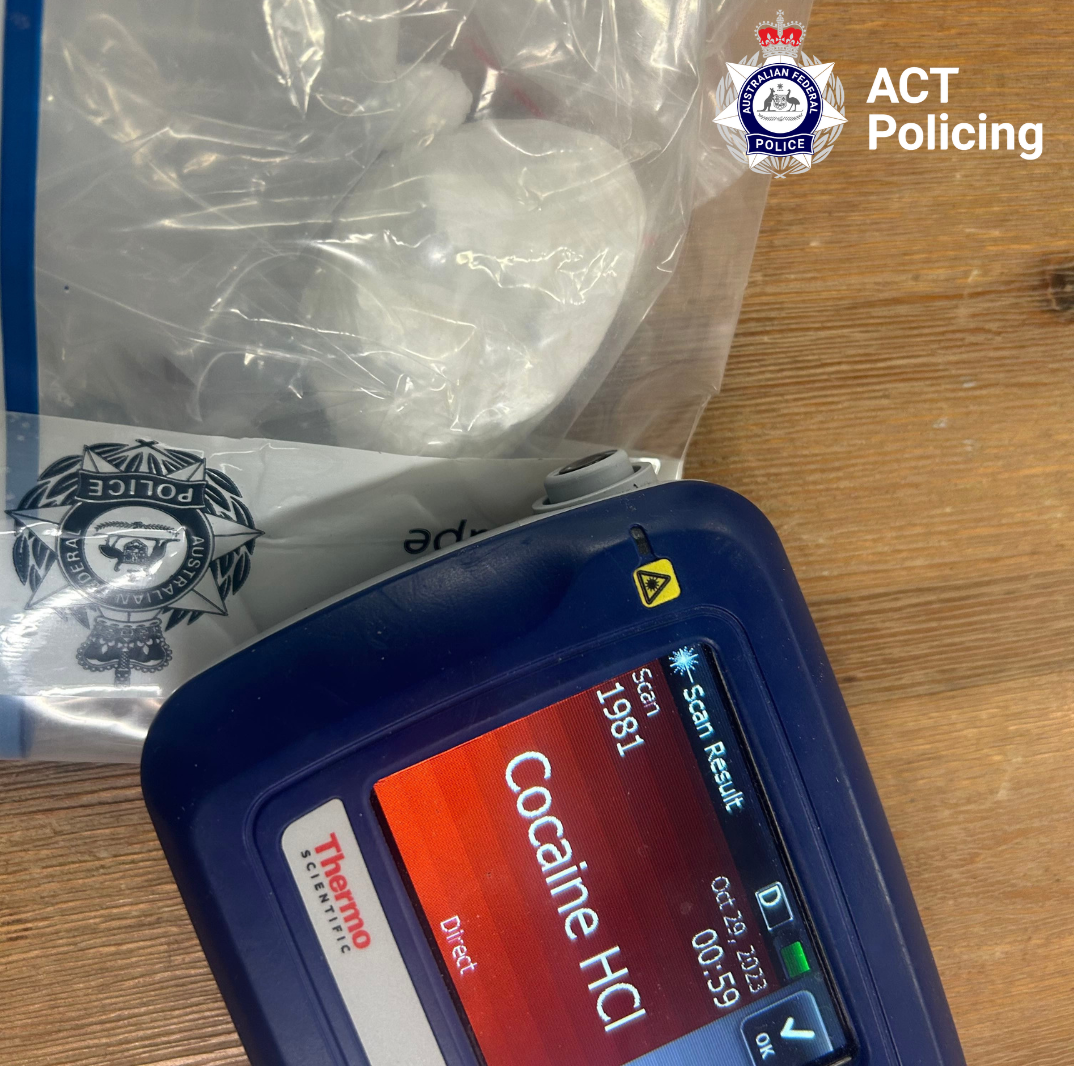
Police will still seize illicit drugs under the decriminalisation laws. Photo: ACT Policing.
Just before Halloween, when all the old monsters come out to play, the most important law reform passed here for some years finally came into force.
After a long and heated debate that reached all the way to the federal parliament, the possession of small amounts of commonly used drugs such as heroin, ice, MDMA, and cocaine was decriminalised. But the much-hyped zombie apocalypse has not eventuated.
The ACT’s progressive law reform agenda always excites national interest. First, a reality check. The new laws do not legalise these drugs. They do not weaken existing penalties for sale, supply, or trafficking.
Indeed, they concern only possession of a ”small amount” for personal use – typically less than one-quarter of the amount treated as simple possession. The laws create a new category covering only the most minor offences, least likely to cause long-term harm.
The legal system treats traffickers and users very differently. For the most part, we assume that low-level users are best dealt with through social welfare and health systems. This ”harm minimisation” approach formed the basis of Australia’s bipartisan National Drug Strategy for more than 30 years. It reflects global best practice.
It is increasingly thought inappropriate to subject those found in possession of small amounts of illicit substances to criminal prosecution, a criminal record, and even imprisonment.
Too much depends, also, on arbitrary discretion or the luck of the draw, whether you are privileged enough to take cocaine in the privacy of your own home, or poor enough to be on the streets.
Decriminalisation merely takes routine practice and applies it across the board.
In cases like these, the criminal justice system is the opposite of value for money. It is exceptionally expensive compared with alternative approaches. This is true for police too – arrest and processing is painfully resource- and time-consuming.
It is also exceptionally ineffective. Possession laws directed at minor users have no effect on levels of drug use. Cannabis was decriminalised in the ACT in 1992. Use went down, not up. Until recently, the ACT had the lowest consumption rate in the country.
Increased use since 2020 – accompanied by a dramatic drop in hard-drug use – might have something to do with the legalisation of cannabis in the ACT in 2019 but might also reflect broader COVID-related changes in drug use. Is drug tourism a thing? No.
In South Australia in 2002, a program of mandatory diversion replaced criminal prosecution for those found in possession of commonly used drugs. Earlier this year, Queensland – the most conservative state in the country – announced it would adopt the same approach.
The ACT decriminalisation model takes a slightly different path to achieve similar ends, permitting users to opt for a fine or a health education program.
If the benefits of the criminal law are hard to see, the harms are not. A criminal law has life-changing effects on future education, employment, and housing prospects. It is a scarlet letter. More than that, the stigma of illegality and the fear of arrest make users reluctant to seek out help and treatment.
Take pill testing. Encouraging people to find out what is in the substance they are taking before they take it ought to be a no-brainer. The ACT Government, with the support of ACT Policing, has been notably more enlightened than its counterparts in Victoria and NSW. Canberra hosts Australia’s first pill-testing service, CanTEST.
Decriminalisation should see more people willing to use the facility. Drug use will not increase. Safety will be improved. Lives will almost certainly be saved.
Meanwhile, some people have failed to move on. Tired old scenes and stereotypes keep being trotted out. All drug users are dangerous junkies. One dose and you’re hooked. Sending the wrong message. Rolling out the red carpet for traffickers. Drug zombies prowling the streets.
These cliches, straight out of the Hammer Horror playbook, do not remotely reflect the diversity and complexity of drug use in the modern world. Such hyperbole is the main obstacle to humane and respectful treatment.
As for ”rolling out the red carpet for traffickers” or ”lining the pockets of criminals”, not decriminalisation but criminalisation bears the blame – increasing profits, increasing crime, increasing corruption. Organised crime does not fear prohibition: it needs it.
Those guilty of mispresenting the new ACT law, its effects, and its targets, ought to take a chill pill and have a good lie-down. It will neither significantly increase drug use nor set impressionable young people on the road to ruin.
It will introduce a dose of humanity into our legal system. It is a small step towards helping those in need of support and treatment.
A leading critic recently warned that decriminalisation would be an ”added burden” on the health system; a ”drain on resources”. What message does such a remark send about whose welfare matters and whose does not? No doubt the health system could do with more funds if they are to respond to increased demand. That would be another terrifying outcome – not.
Desmond Manderson is a professor at the ANU College of Law and a member of the ANU Drug Policy Research Network.












